MICHAEL SALU
RED EARTH
(An excerpt from a book length prose poem)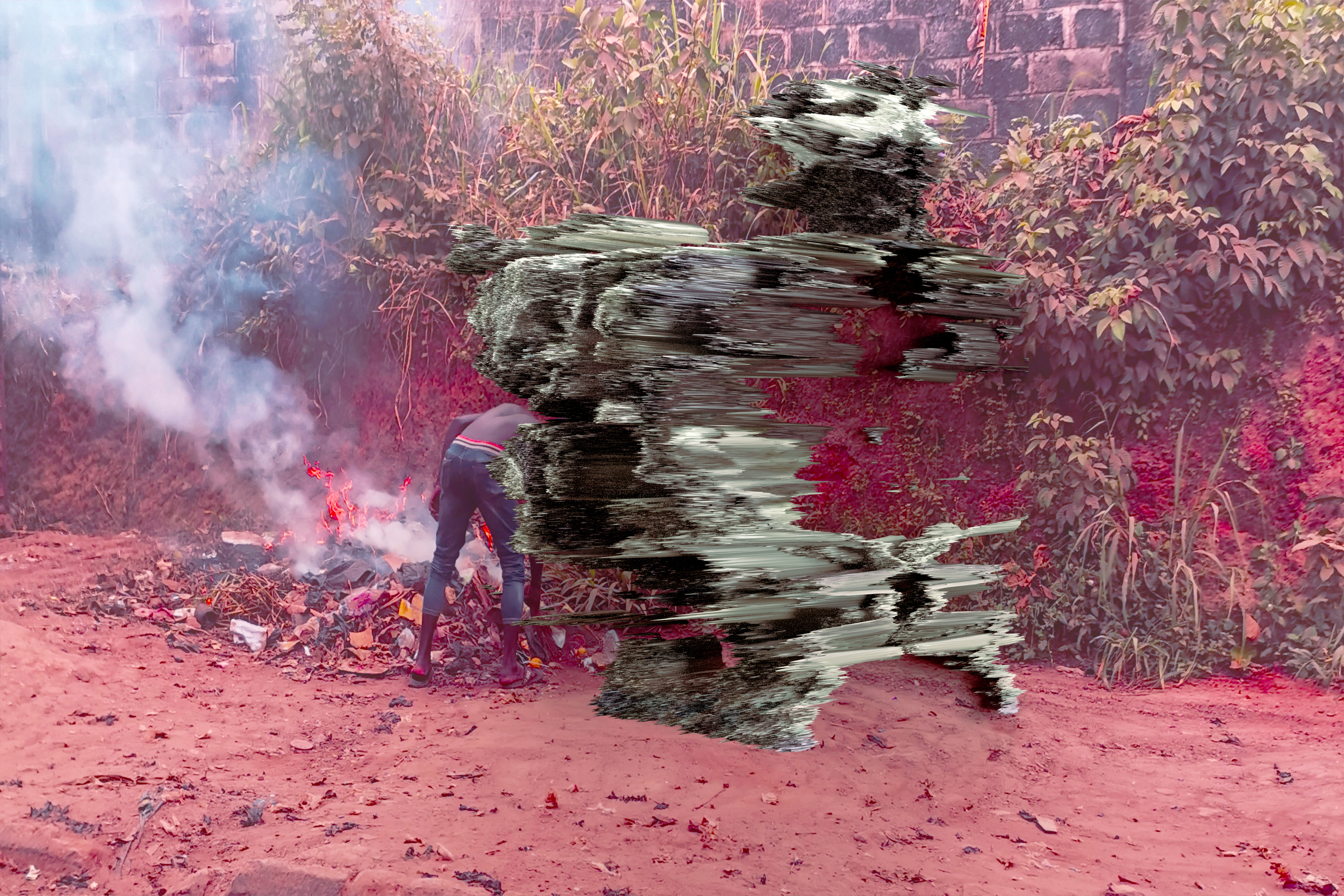
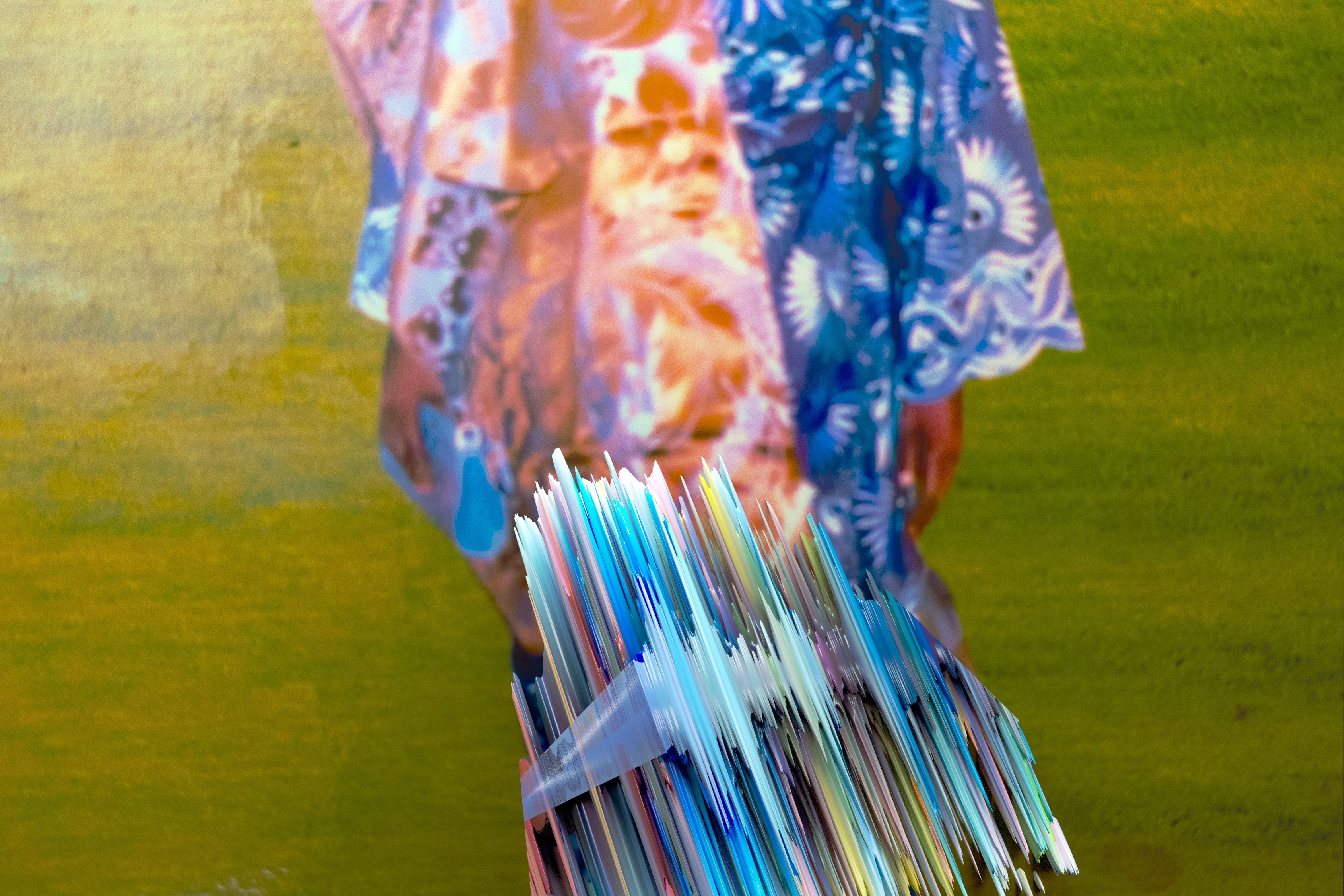
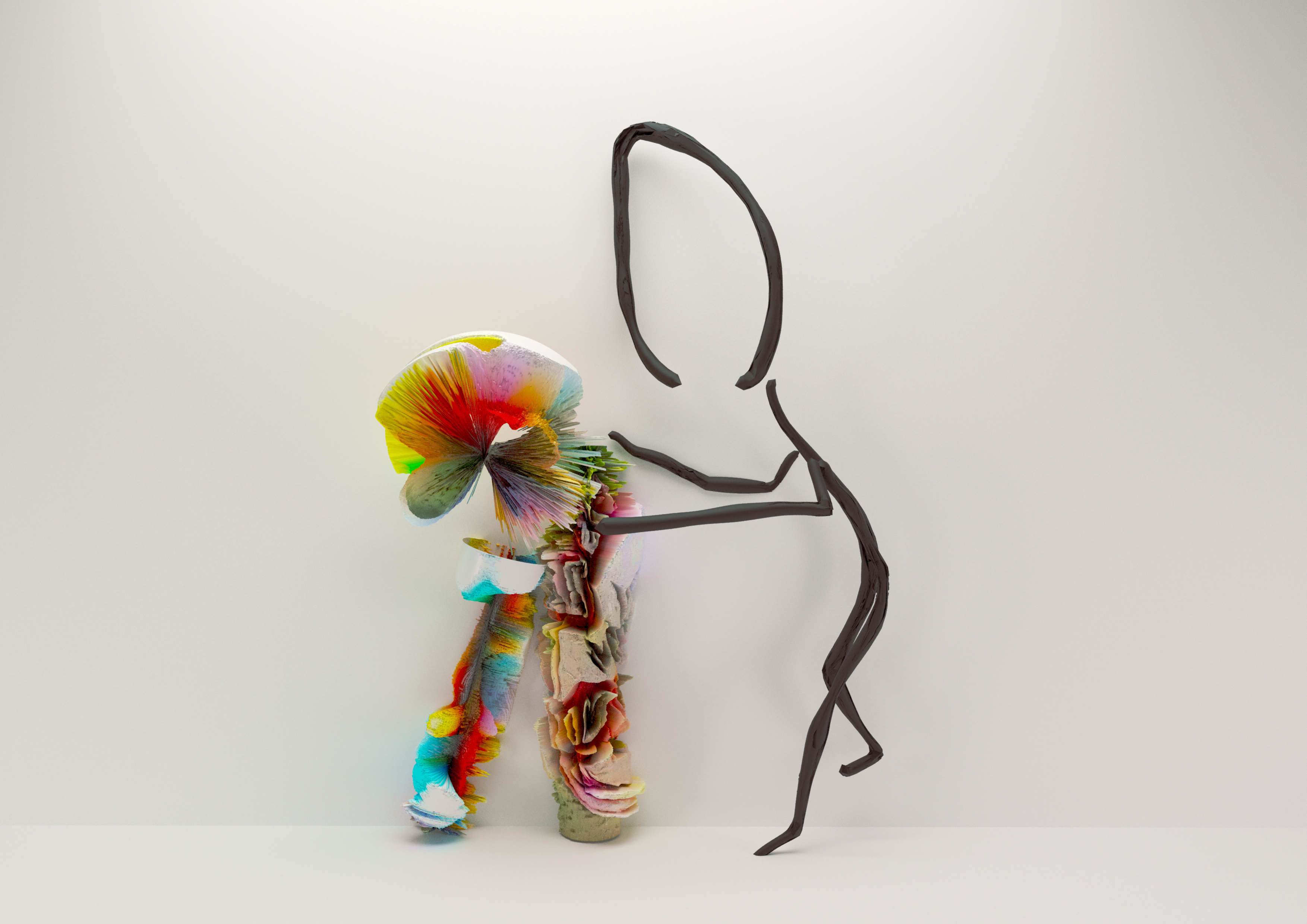

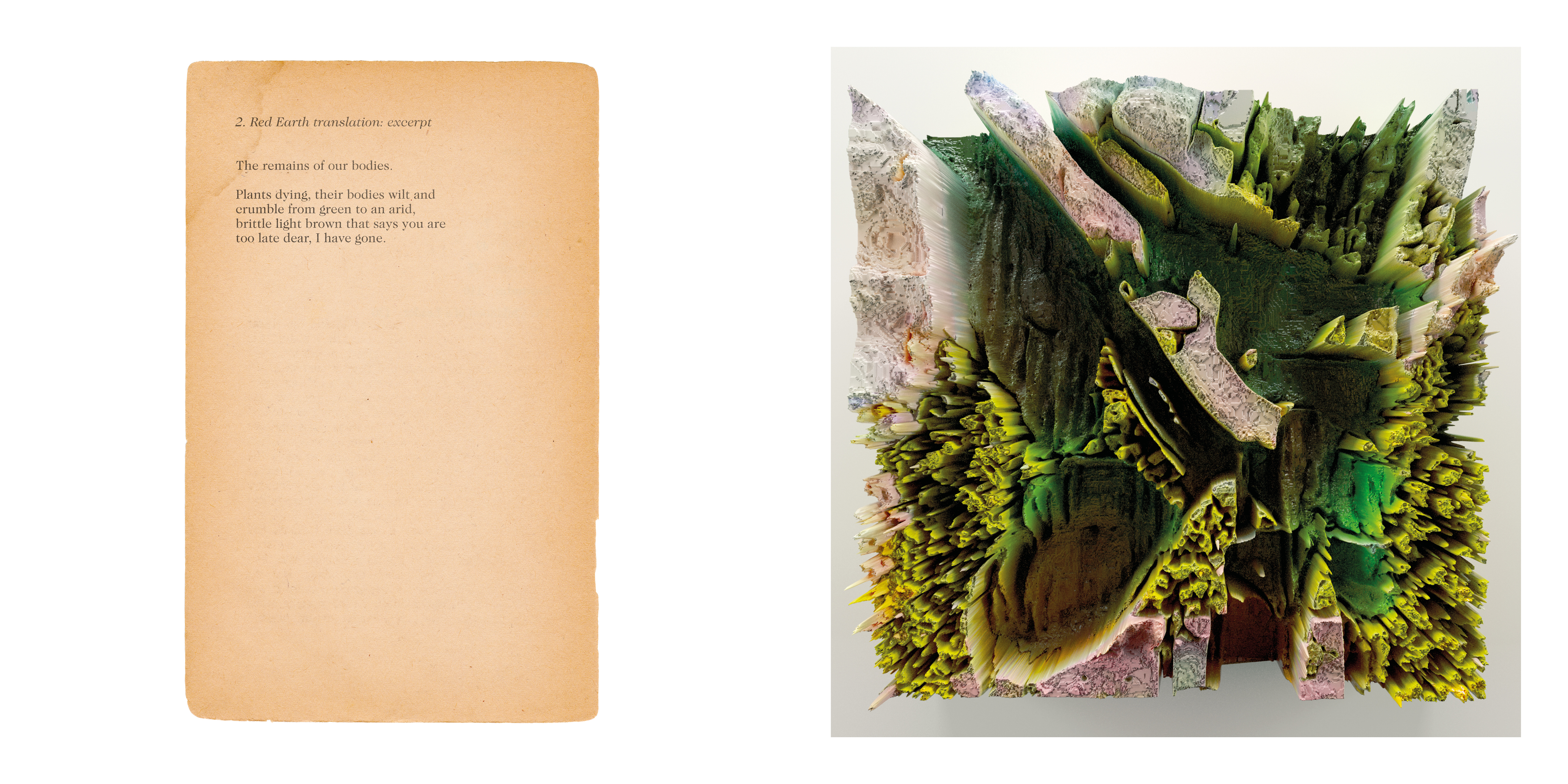
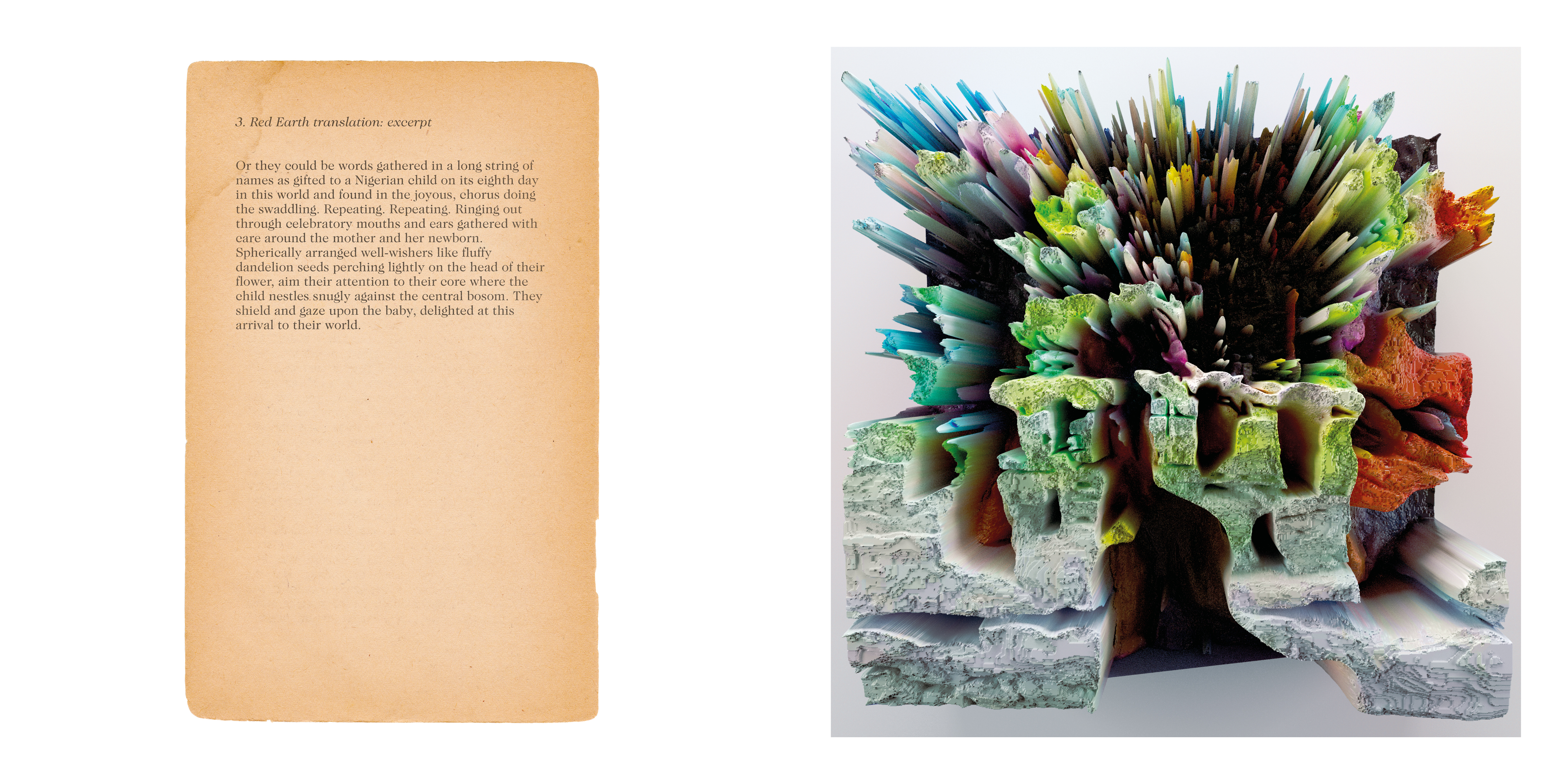
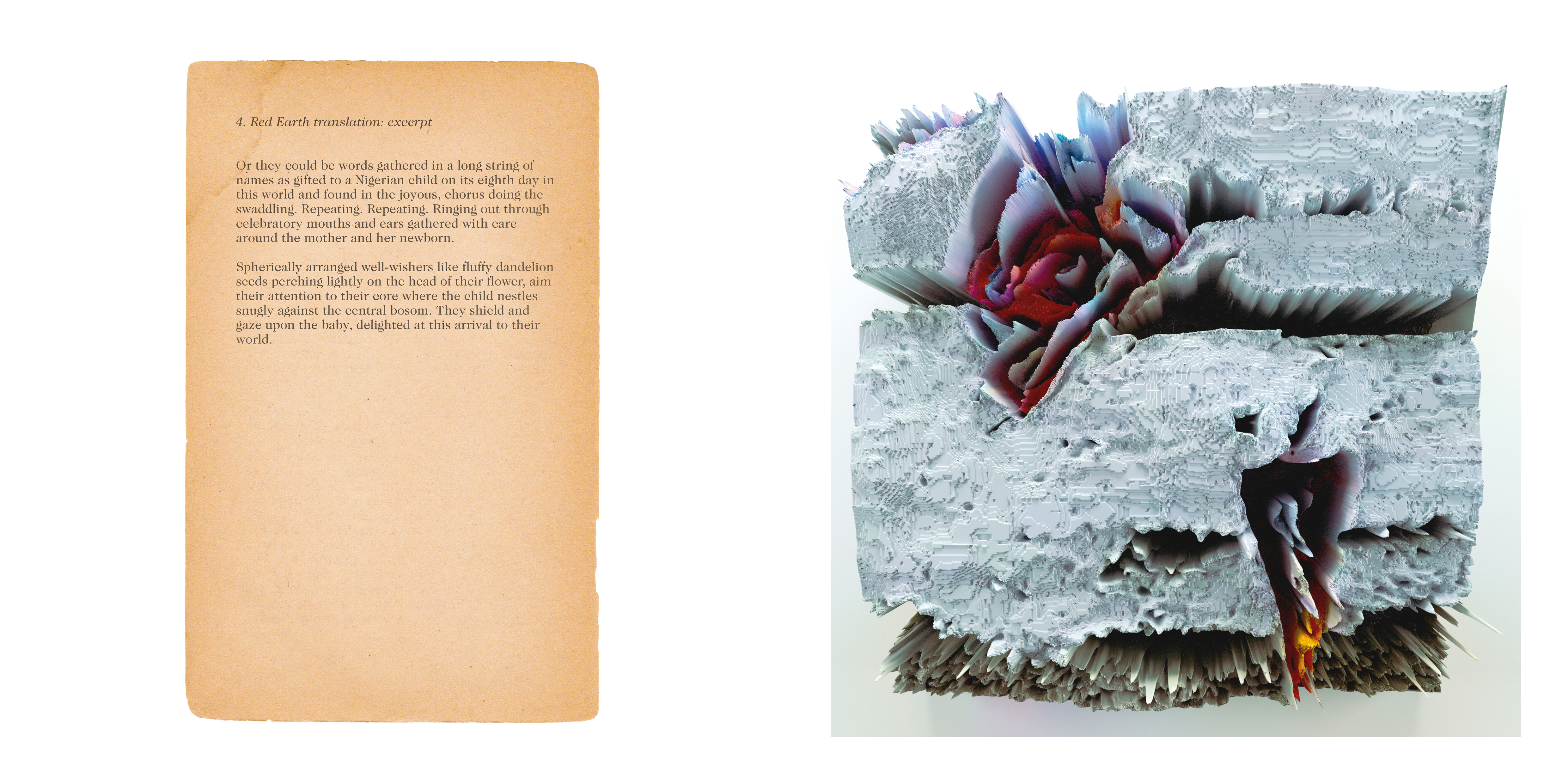
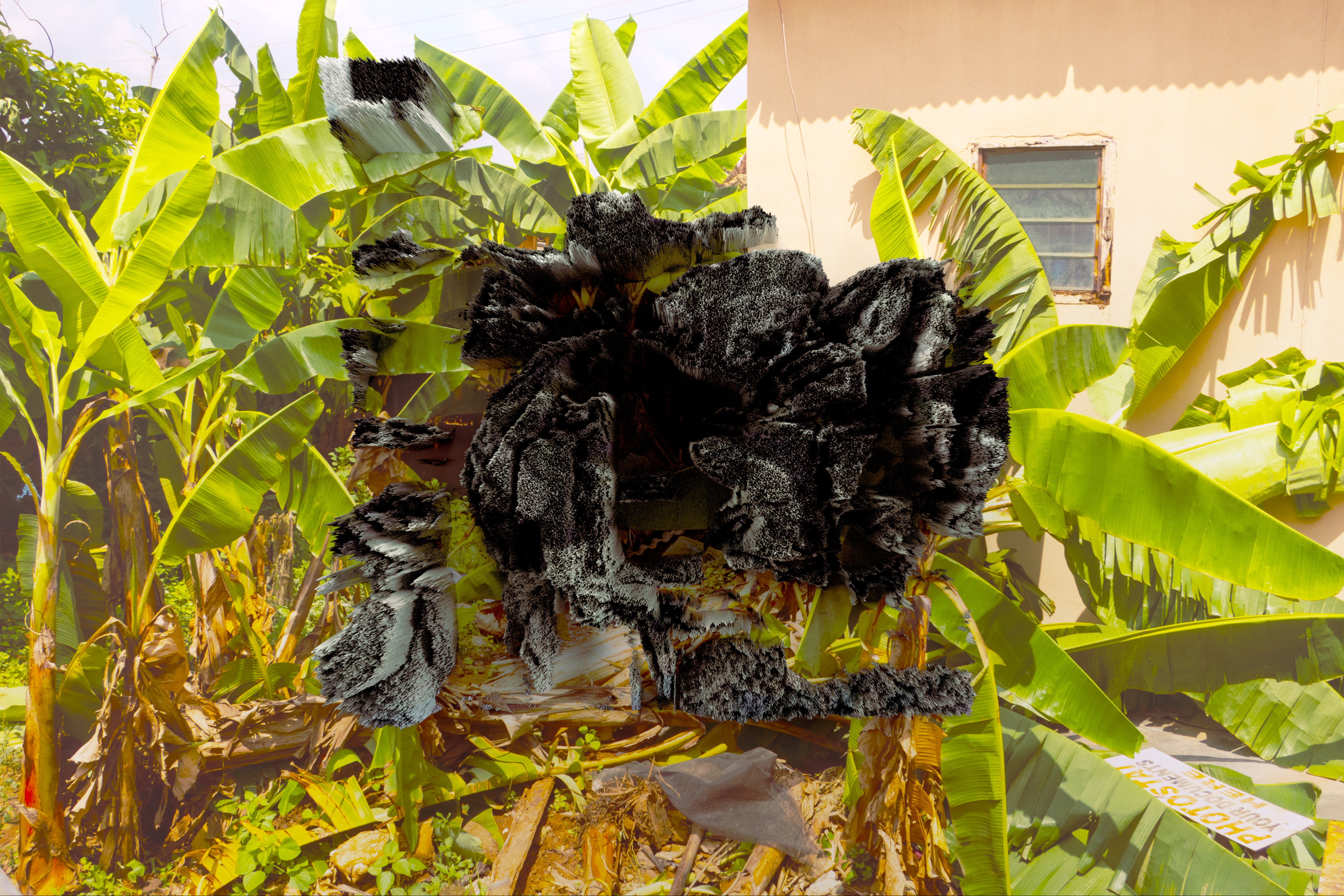
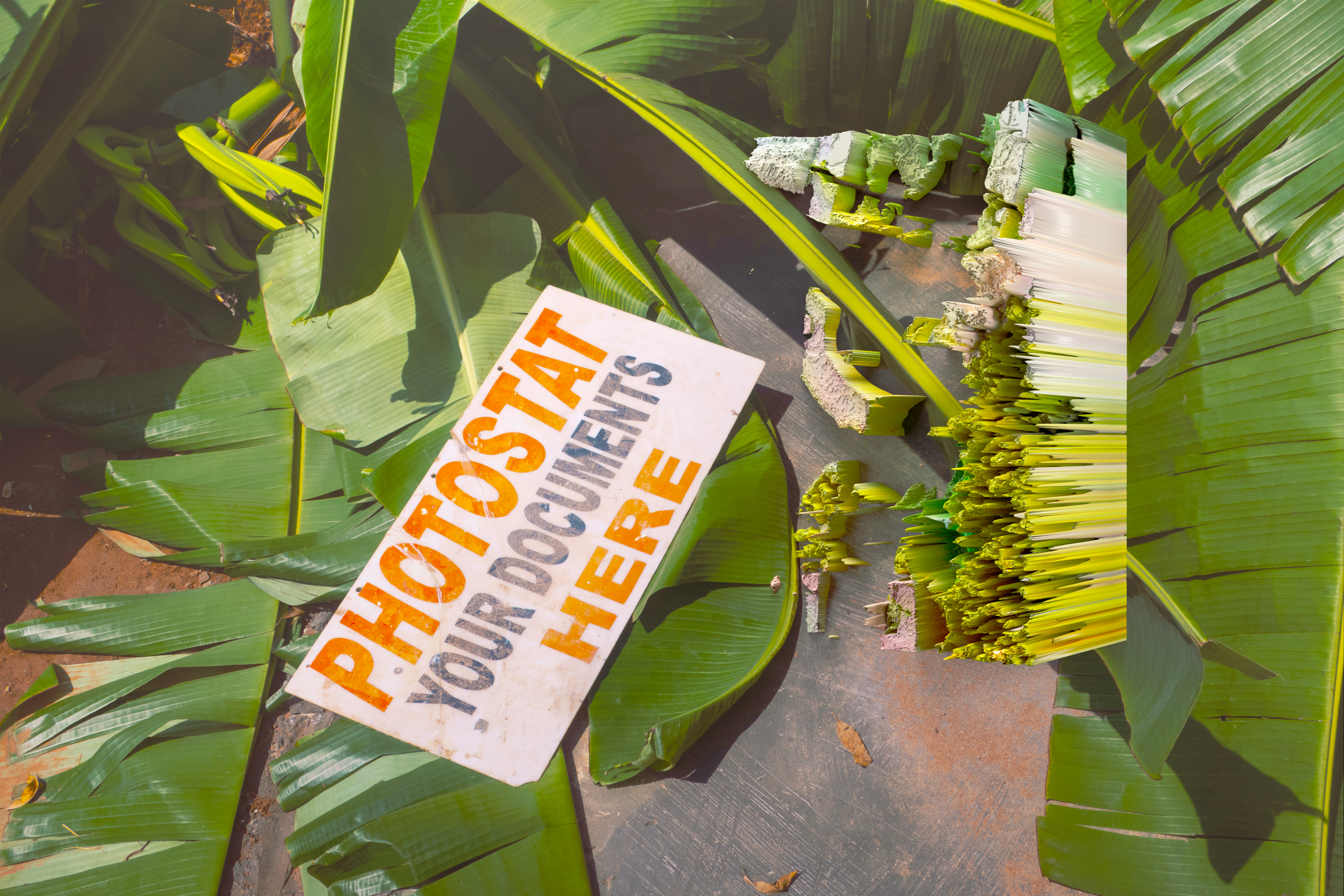
It always feels in the timbre of my voice, live an accumulation of these vibrations. Found in each word, some I may have felt from a song sung through the dome of my mother’s womb.
It may have been a jazz singer’s cry straining through some speakers, and a crackle, a ghostly spec of textures past, while I made my preparations within. Her words sprinkling an unborn with defiance potent to the degree that propelled such a fiery desire to live in full.
These words could have even negotiated a path from the small television
central to a living room, to nestling instead within my memories.
Words that watched along while memories disassociated from the physical objects I would assign to them like a photograph or a brooch, or a toy car–into instead, compressed and uninhabited frames. Ghoulish, programmatic husks of being. Rise, rise like William Blake’s The Soul Hovering over the Body Reluctantly Parting with Life unwilling yet to leave. Instead, these memories lead me to a different way of existing, one I will not again consult, becoming something virtual and away from me to nothing.
External memories lie dormant, no longer recalled, but exist as trace remains of words I can find to hopefully shape into something new.
Like words spoken beneath a Paw-paw tree where my mother might
have stood as a young girl, gossiping with her friends about what occurred during last night’s party.
Where the sound system crackled and the bass it proffered gave the unlit earth a noticeable hum and voices scattered out through the dark, the occasional flash of a lighter catching a bright smile.
Or they could be words gathered in a long string of names as bestowed upon a Nigerian child on its eighth day in this world and found in the joyous, chorus celebrating. Repeating. Repeating. Ringing out through celebratory mouths and ears gathered with care around mother and her newborn.
Well-wishers arrange themselves spherically like fluffy dandelion seeds perched lightly on the head of their flower, their attention drawn inward, where the child nestles snugly against the bosom at the centre. They shield, the baby and gaze delighted at this arrival to their world.
The child remains nameless until its eighth day breathing this air, and so the child is not yet of this world, waiting, and amid goodbyes to the previous world.
I imagine how those eight days can quickly slip through one’s grip. The first might well up remote awareness that an end is a possibility, or at least a change, a rupture, but on this first day, it is an end distant enough to dance in the joy of now.
So they will enjoy the sharp dry rosé from an elegant bottle with a long curved neck like a swan.
They’ll bring a fresh salad to a garden table dressed wantonly by leaves fallen from the olive tree sheltering them.
Another day might lead them on a light walk away from their grounds, a walk deep into the surrounding forest, necks warming under dappled rays from a sun hotter and less inhibited than they have ever known it to be.
They could pause a moment on their backs amidst the long grasses, central to a clearing of tall trees and tilt their heads back to look at what is above.
The unborn child might then be hit with a sudden and yet profoundly simple revelation; that this new world they are to enter exists upside down.
Everything does.
The trees, monuments fixed to the spherical surface of the earth.
The oceans housing all manner of life we’ve yet to meet. We sprout out like the trees from this central layered sphere of materials; architectural mimesis, possibly, to organisms ogled under a microscope.
Earth’s respiratory apparatus clusters jut outwards, the reaching tendrils of an organism floating in the preservation fluid of the universe, orbiting its life force at speed.
The child would keep this sudden discovery to itself, thinking about how gravity can pin us down against this hurtling rock and alter how we perceive.
They would think about how gravity can hold a vast ocean in place,
and our illusory existence above ground, becoming a food source
when our bodies crumble in death, it can only be a fallacy.
Things are –the child will discover –in fact, the other way around to how we insisted this story is to be told and in the cold truth of language, a browning, crisping, disintegrating corpse does rather instead float upwards, tiny fragments rest on the top layer of the earth; a layer of the dead, feeding the new life to come.
Will this corpse then join the cosmos itself? Will it watch its own dispersal into all that is above, absorbing its tiny grains, its shed skin as a continuity of being?
Soon it would be time for the child to say goodbye, silence will befall those the child will leave behind.
Even the child’s suitcase will express defiance, an errant trouser-leg martyring itself, obstructing closure, but only delaying the inevitable, but this is not a sign.
Voices overlap selfhood shifts. Caught in the physical multiplicity of a flock of birds lifting off together, their wings sometimes overlapping, whirling up powerful physics of a collective. Taken forward in motion onto aerodynamic drag, where some will lead, and others will gratefully follow, clutching at the simpler air provided while they head southward away from the sparsely populated grounds beginning to dampen and freeze, down to warmer lands, passing over the Mediterranean coastline. Among the furry rock at the bottom of this sea, lay stories, loves, grief and grievances past, in the bones of Phoenicians or Mesopotamians. Shards from the hulls of ships jut out of the seabed, pointing at all that is yet to occur.
ABOUT THE ARTIST
Michael Salu is a British-born Nigerian writer, artist and critic, whose work and ideas find a place in a multidisciplinary practice. His written work has appeared in several literary journals, magazines and art publications and he has exhibited visual work internationally. He runs House of Thought, a creative research practice and consultancy and is the former creative director of Granta Publications (London). He currently lives between Berlin and Lagos.